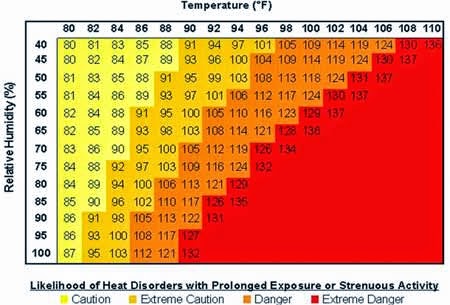People age sixty five or older are more prone to heat-related illnesses than other segments of the population due to medical conditions and the side effects of prescription medications. Therefore, seniors must take extra precautions during the summer months:
 1. Stay cool. According to the Center for Disease Control, air conditioning is the number one preventative measures in preventing heat-related illnesses in the elderly. During the heat of the day or times of extreme heat, seniors should stay in an air-conditioned environment and refrain from engaging in strenuous activities. If your home is not air conditioned, contact your local senior center for transportation to that facility. In extreme heat, your local government may establish heat shelters as well and provide transportation for those without transportation.
1. Stay cool. According to the Center for Disease Control, air conditioning is the number one preventative measures in preventing heat-related illnesses in the elderly. During the heat of the day or times of extreme heat, seniors should stay in an air-conditioned environment and refrain from engaging in strenuous activities. If your home is not air conditioned, contact your local senior center for transportation to that facility. In extreme heat, your local government may establish heat shelters as well and provide transportation for those without transportation.
2. Stay hydrated. Seniors should drink plenty of cool liquid regularly unless directed otherwise by their physician. Those who take water pills or have water sensitive medications should consult with their physicians about their daily water intake during summer months.
3. Stay comfortable. Wear lightweight, loose fitting clothing.
4. Stay informed about your medications. Read the side effects of all medications to determine if heat increases their dangers. If your medications are affected by heat, talk to your doctor about any of the precautions you should take.
5. Stay in touch. Check in regularly with a family member or friend. If you are regularly in touch with a family member or friend, you can ask for assistance when you need it and who can help you if you fall ill.
6. Stay aware. Symptoms of heat-related illnesses include: dizziness, weakness, rapid pulse with shallow breathing, nausea, vomiting, and faintness. If you begin to have these symptoms, seek immediate medical attention.

